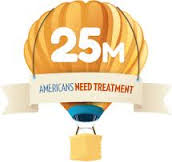NewDay Counseling
If you have a problem with alcohol or some other drug, call a NewDay counselor at 912.201.3605 * 401 Mall Blvd, Ste 101 D, Savannah, Ga * Free Phone Consultations
ACA and Addiction Treatment
 This is from the Office of The Assistant Secretary for planning and Evaluation regarding the Affordable Car Act and treatment for alcohol and other drug problems:
This is from the Office of The Assistant Secretary for planning and Evaluation regarding the Affordable Car Act and treatment for alcohol and other drug problems:
The Affordable Care Act builds on the Mental Health Parity and Addiction Equity Act of 2008 to extend federal parity protections to 62 million Americans. The parity law aims to ensure that when coverage for mental health and substance use conditions is provided, it is generally comparable to coverage for medical and surgical care. The Affordable Care Act builds on the parity law by requiring coverage of mental health and substance use disorder benefits for millions of Americans in the individual and small group markets who currently lack these benefits, and expanding parity requirements to apply to millions of Americans whose coverage did not previously comply with those requirements.
There are approximately 25 million Americans who need addiction treatment, yet only around 10% actually receive treatment, and it’s questionable if some of this treatment is actually focused on addiction. Alcohol and other drug problems are responsible for a large part of our national healthcare costs. Heroin addiction alone causes physical problems most people wouldn’t consider — this is from National Institute on Drug Abuse:
Heroin abuse is associated with a number of serious health conditions, including fatal overdose, spontaneous abortion, and infectious diseases like hepatitis and HIV (see box, “Injection Drug Use and HIV and HCV Infection”). Chronic users may develop collapsed veins, infection of the heart lining and valves, abscesses, constipation and gastrointestinal cramping, and liver or kidney disease. Pulmonary complications, including various types of pneumonia, may result from the poor health of the user as well as from heroin’s effects on breathing.
In addition to the effects of the drug itself, street heroin often contains toxic contaminants or additives that can clog blood vessels leading to the lungs, liver, kidneys, or brain, causing permanent damage to vital organs.
Besides the risk of spontaneous abortion, heroin abuse during pregnancy (together with related factors like poor nutrition and inadequate prenatal care) is also associated with low birth weight, an important risk factor for later delays in development. Additionally, if the mother is regularly abusing the drug, the infant may be born physically dependent on heroin and could suffer from neonatal abstinence syndrome (NAS), a drug withdrawal syndrome in infants that requires hospitalization. According to a recent study, treating opioid-addicted pregnant mothers with buprenorphine (a medication for opioid dependence) can reduce NAS symptoms in babies and shorten their hospital stays.
Perhaps, now that insurance will pay for treatment, more people will receive the help they need. Along with access to treatment, treatment itself has to improve. Maybe there will be greater effort to identify treatment that specializes in alcohol and other drug problems, and maybe the medical community will do a better job identifying the problems and prescribing treatment.
Recent Comments